- Home
- Roger Taylor
Into Narsindal [Book Four of The Chronicles of Hawklan] Page 23
Into Narsindal [Book Four of The Chronicles of Hawklan] Read online
Page 23
Riddin was criss-crossed with wide, well-made roads and though these were for the most part snow-filled, the Orthlundyn found themselves making excellent progress after the leg-aching toil through the mountains.
Together with Loman and Isloman, Hawklan rode up and down the line, encouraging the marchers, looking at the few sick and injured and subtly assessing the condition of the whole army. As the light began to fail, Dacu returned with the Helyadin.
'There's no signs of hostile activity,’ he announced, dismounting and walking alongside Hawklan. ‘In fact the only place we've seen any activity at all is in the village about an hour's march down the road.'
Hawklan looked up at the darkening sky and then at Agreth. ‘Ride ahead and announce us, Agreth,’ he said. ‘We don't want to be attacked in the dark by some startled militia. Go with him, Dacu, Athyr, in case there's news we need to know quickly.'
As the three men rode off into the gloaming, Hawklan turned to Loman. ‘Strike the torches, but hood them,’ he said. ‘There's no point announcing our numbers until we find out what's been happening here. And take a small vanguard forward.'
Loman frowned slightly. ‘Dacu would've told us if there was any risk,’ he said.
'Do it,’ Hawklan said peremptorily. ‘We're all tired and we're none of us battle-ready yet.'
Hawklan's precautions proved unnecessary however, as within the hour Agreth returned. He was accompanied by an elderly man seated straight and tall in his saddle.
'Hawklan, this is Fendryc, second son of Fendarek, from the Haron branch of...’ Agreth stopped and rubbed his nose with a rueful smile. ‘Fendryc is the Elder to the village ahead,’ he said briefly, with a quick look of knowing apology to his new companion. ‘It's his runners whose tracks we've seen at the farms.'
Hawklan smiled and extended his hand to the old man.
Fendryc leaned forward and took the hand. Hawklan's eyes narrowed in dismay.
'Don't dismount,’ he said softly. ‘Your joints pain you. You shouldn't have come to greet us in this cold.'
The old man looked from Hawklan to Agreth, his stern expression fading into one of profound surprise.
'I told you the Orthlundyn was no ordinary man, Elder,’ Agreth said simply. ‘Tell him your news.'
Hawklan mounted Serian to bring himself level with Fendryc. The old man was recovering his composure. ‘I thank you for your courtesy, young man,’ he said. ‘But to be in action again sets my discomfort well aside.'
Hawklan made to reply, but Fendryc continued, ‘My people are ahead marking out a good site for your night's camp and we'll let you have such fodder and radiant stones as you might need, but I have to ask you: why are you here?'
Hawklan raised his eyebrows. ‘The Morlider, Fendryc,’ he said. ‘The Drienvolk told us of their attack.'
The old man shook his head. ‘Drienvolk,’ he muttered, his voice a mixture of awe and disbelief.
'Drienvolk,’ Hawklan confirmed. ‘They saw the islands and the great flotilla of ships, and good fortune gave them the chance to warn us.
Fendryc lifted an unsteady hand for silence. ‘I don't doubt you, Orthlundyn,’ he said. ‘The Morlider are indeed coming. They were sighted many days ago sneaking towards us in the wake of a great storm. Urthryn called the General Muster and almost all the Lines will be gathered there now.’ He clenched the waving hand. ‘A host the like of which has never been gathered before. We'll destroy them as they land.’ He looked at Hawklan and repeated his question, ‘But why are you here?'
'I don't understand,’ Hawklan said.
The old man pointed into the darkness. ‘They're gathered in the south, not here. It's several days hard riding by fast horse even in summer. It would take weeks on foot.'
* * * *
Urthryn slapped his gloved hands together as much in frustration as to warm them. With his knees he guided his horse to Girvan's side. His face was concerned. ‘What does the fisherman say?’ he asked. ‘What did the watch boats see?'
Girvan shrugged. ‘Nothing new,’ he said. ‘And they were chased off like all the others. There's a lot of activity going on out there but they couldn't get close enough to see anything in detail.'
Urthryn shook his head and let out a long steaming breath. ‘Why should they delay like this? It makes no sense. The weather's good. They had the benefit of some surprise when they arrived, but they must surely know we've gathered our strength by now.'
Girvan could offer no help. The waiting was not doing the morale of the Lines any good, not least because no one could see any reason for it. And it had been extensively discussed by Urthryn, his advisers, the Goraidin, and all the senior Line Leaders, not to mention Oslang and the other Cadwanwr who had arrived. He glanced around. The duty Lines were strung out across the cliffs and row upon row waited along the shore. Behind him the massive temporary camp dwarfed the small fishing village. He had never thought to see so many riders in one place at the same time. It was a logistical triumph: the Muster—the Riddinvolk—at their very finest.
But the enemy did not come.
Urthryn lifted his hand to his face and removing a glove, rubbed his eyes wearily. ‘Oslang,’ he said, turning to the Cadwanwr. ‘Has a night's rest given you any great inspiration?'
Oslang shook his head. ‘None, Ffyrst,’ he replied. ‘We detect no use of the Old Power. I'd like to think that they've decided not to attack having learned about your force in some way, but that's hardly realistic. I can only imagine they're hoping to destroy your morale by a prolonged delay.'
Urthryn grimaced. Same old thoughts treading a weary round. But he could scarcely reproach the Cadwanwr—they were not, after all, fighters, and couldn't be expected to think as such. Even the Goraidin could offer little, though something was being missed and everyone knew it.
'It's a feint,’ Olvric had said after the first few days of waiting.
'Cadmoryth's boats have seen hundreds of ships moored by those islands, and swarms of men,’ Urthryn had replied.
'Before they were conveniently chased away,’ Olvric retorted. ‘And why didn't they capture your boats, or sink them?'
'Because we took your good advice,’ Urthryn replied with some heat. ‘We've built boats like theirs. We were too quick for them.'
'Cadmoryth?’ Olvric said, looking at the fisherman inquiringly.
Cadmoryth had looked apologetically at his Ffyrst. ‘I can't be certain,’ he said. ‘But it's a possibility that our boats were allowed to escape. At least two of our captains said they didn't think the Morlider were trying very hard.'
Urthryn scowled again as he remembered the conversation. Still, the Goraidin usually talked sense and at least restarting the coast watch to a couple of days’ riding north and south had helped with morale by giving the otherwise idle Lines something to do.
'Ho!’ A loud cry cut across his musing.
Girvan seized his arm and pointed to one of the fishermen standing in a precariously rigged look-out tower on top of the cliff.
'Ships ho!’ came a second cry.
Urthryn urged his horse up the steep path followed by Girvan and the two Goraidin. Oslang followed cautiously, one eye on the nearby edge of the cliff, the other on the silent ranks of patiently waiting riders watching him pass with some amusement. Cadmoryth did not move but stared out at the ragged horizon, his eyes narrowed.
When Urthryn reached the look-out tower, its occupant was clambering down with alarming agility. He was red-faced as he jumped down the last section making Urthryn's horse start a little.
'Hundreds of them, Ffyrst,’ he said, pointing out to sea. Urthryn reached into his pocket and retrieved a seeing stone. No sooner had he lifted it to his eyes than he drew in a sharp breath.
'Signaller,’ he said. A young boy stepped out of the waiting ranks. Urthryn walked his horse to the edge of the cliff and looked down at the riders on the shore far below. ‘Sound the Alert,’ he said to the boy.
'Ffyrst!’ the boy shouted excitedly, then, licking
his lips, he lifted up a curved brass horn and blew a simple but piercing call.
The ranks lining the cliffs maintained their station, though a noticeable tremor ran through them. On the shore below and in the camp behind the cliffs, a purposeful surge of activity began.
'Messenger!’ Urthryn shouted. Another figure stepped from the ranks. ‘Go down to the Line Leaders on the shore. Remind them that these brigands are not to land. They die in the water. We've arrows enough to sink their damned islands; see that they're used well.'
Involuntarily, Oslang grimaced at Urthryn's tone and for an instant the Ffyrst looked angry at this implicit reproach. His anger however, did not reach his voice. ‘Your friends will be brought up as part of the alert,’ he said. ‘Are you prepared?’ His voice was unexpectedly gentle.
Oslang gave him a grateful and slightly apologetic nod. ‘As far as I know,’ he said. Then, more reassuringly, ‘We'll fight to our limits if Creost manifests himself, have no fear about our resolve. We know the cost of failure.'
Urthryn nodded.
'Shall I recall the coast patrols?’ Girvan said. Urthryn looked at the distant islands and at the riders on the shore below. Then, as he looked up, his eye fell on Yengar. The Goraidin was looking upwards. Urthryn followed his gaze. Clambering nimbly on to the swaying platform of the watch tower high above, was Olvric.
Still watching the Goraidin, Urthryn said, ‘No. Tell them what's happening and tell them to be on the alert in case it is some kind of elaborate trick.’ Then, to Olvric, he shouted, ‘What do you see, Goraidin?'
'Ships,’ came the reply after a moment. ‘Maybe four hundred or more. In ranks and files as neat as your squadrons.’ Olvric's voice was uncertain.
'Your friend seems doubtful,’ Urthryn said to Yengar.
The Goraidin nodded. ‘So am I. They must know by now what they're sailing into. I can't imagine how they expect to land and establish a bridgehead against what they must surely see arrayed here. Your archers alone may destroy them.'
'That's my fervent hope,’ Urthryn said. But the Goraidin's doubt disturbed him. What could possibly overwhelm the massive forces waiting on the shore?
Creost, came the thought.
He looked at Oslang, now greeting Ryath and the other Cadwanwr who had arrived over the past few weeks. They sit on horses like ill-tied baggage, he thought, in spite of himself, then he crushed the ungracious thought ruthlessly. He could not feel comfortable about the role these strange people were to play. Would they indeed fight to their very limits when need arose, as Oslang had promised? And what would those limits be? What power did this Uhriel command? He remembered Drago, knocked to the floor seemingly by a mere thought from Oslang. Then there was the power that Oslang had exerted over the Morlider's mind. But these thoughts gave him no solace when he remembered a rather awkward Girvan telling him of the strange ‘unnatural’ storm that had blown so terribly before the islands appeared and when he recalled Sylvriss's tale of the destruction of Vakloss by Oklar.
Again, he set the thoughts aside, though with difficulty. He had no alternative but to prepare his people to face a large and vicious army about to launch an unprovoked war of conquest. He would simply have to trust that the Cadwanwr knew what they were doing.
The approaching ships were clearly visible now. They were a magnificent sight, large colourful sails billowing to catch what slight breeze there was, white foam protesting round their bows, oars beating the waves rhythmically. Briefly, Urthryn felt a twinge of regret. How many good men and horses were to be killed and maimed today? Why were these people not content just to sail their beautiful ships and ride the oceans’ paths on their wondrous floating islands? Why must they seek always to destroy and ravage?
He let the thought pass by unhindered by debate. Perhaps the Morlider had their own answer to such questions, but now he had time only for killing strokes until those same ships were heading back whence they came.
The riders on the shore could now see the ships and were manoeuvring to ensure that no part of the shoreline would be unprotected. As the ships neared the beach, the riders would move to the sea's edge and launch volley upon volley of arrows into them. Any who survived that onslaught would then have to wade through the water for perhaps a hundred paces or more through the same intensity of fire. Yet, they must know this, Urthryn thought again, as some ill-formed unease rumbled deep within him.
'Ffyrst.’ It was Oslang. Urthryn turned.
'Creost is putting forth his power,’ the Cadwanwr said, his face intent as if listening for a distant sound.
'I feel nothing,’ Urthryn said, uncertain how to respond.
Oslang paused. ‘I think it drives the ships,’ he said. ‘But there's something else as well that I can't identify. It's subtle. Shall we oppose the ships?'
Urthryn looked at the approaching fleet again. To his eye, nothing was untoward. He was distracted by a sharp whistle. It was Yengar signalling to Olvric, giving him Oslang's news. High above, the Goraidin lifted his hands to shade his eyes.
'No,’ said Urthryn, turning back to the Cadwanwr. ‘Let them come. Let's settle this affair blade to blade.’ He looked down again to the riders on the shore. They were beginning to move forward, but something was different, though precisely what eluded him.
For a while there was silence except for the sound of the sea and the distant cries of the riders on the shore, then, ‘Ffyrst. Something's wrong.’ It was Cadmoryth; he had followed Urthryn and the others up the cliff path slowly, on foot. He reached up and took Urthryn's wrist in a powerful grip. His other hand was pointing to the shore. ‘The tide's ebbing,’ he said.
Urthryn frowned. That was the change he had seen but not recognized—but what was the significance of a receding tide?
Cadmoryth answered the unspoken question. ‘It's too fast and it's not the time,’ he said. ‘I was so occupied, I didn't notice. Get your people off the shore now!'
Urthryn snatched his hand free and took in at once the fisherman's nervous face, the advancing ships, and the riders, walking their horses after the now rapidly retreating water.
'I don't understand...’ he began.
His voice disappeared under a great cheer from the riders around him as the archers on the shore released their first volleys into the leading ships. Even on the cliffs, the rush of the arrows could be heard.
'Ffyrst...’ Cadmoryth seized his wrist again desperately. ‘For pity's sake. Get them off the shore!'
But a more urgent cry caught Urthryn's attention. It was Olvric. Looking up, he saw the Goraidin clambering down the watchtower. Uncharacteristically, he was shouting—shouting frantically. ‘The boats are empty. And there's something out there, coming in fast. Get those people off the shore. Now!'
From the beach came the sound of yet more volleys of arrows and the crunching rattle of the ships beaching in the shallows. The riders were advancing relentlessly, following the receding water almost at the trot now and eagerly waiting for the first sight of the enemy that had chosen to threaten their land.
But Urthryn scarcely registered the unfolding saga beneath him. He was transfixed by Olvric. Normally emotionless and laconic, the Goraidin's face was now alive with fear and he was staring out to sea. Urthryn followed his gaze. The distant islands were no longer visible. Instead, a blur now separated sea and sky.
Then a figure surged past him and went right to the edge of the cliff. It was Oslang, his hood thrown back and his arms extended.
Ryath and the others followed him.
'Do as they say, Ffyrst,’ Oslang cried, without turning round. ‘I think we can give you a little time. But hurry!'
Urthryn's hesitation vanished. ‘Signaller, sound retreat,’ he shouted.
'Retreat, Ffyrst?’ the youth inquired uncertainly.
'Retreat, boy!’ Urthryn thundered. ‘As you've never blown it.'
Shaken by his leader's sudden anger, the boy's mouth dried and made him falter with the first notes. From some hitherto unknown depth of patie
nce, Urthryn found a nod and a strained smile of encouragement for the boy, and the call to retreat eventually burst out of the curved horn, clear and determined.
'Louder, lad,’ Urthryn whispered to himself, as the nature of the advancing blur in the distance began to become apparent. It was a great foaming wave.
As the strident horn call reached the ordered ranks on the beach there was confusion. Battle-ready and on the verge of facing their enemy, the sudden urgent call to retreat was not heard by some, doubted by most others, and blatantly ignored by a few.
Urthryn's eyes widened in horror as he saw the hesitation. Then, suddenly, a powerful wind struck the watchers on the cliff. The signaller faltered again as his horse shied, but Yengar caught its reins and steadied it. ‘Keep blowing, boy,’ he shouted above the noise of the wind and increasing roar of the oncoming wave.
It seemed to Urthryn, as he watched, that the squadrons below, still confused, were blundering and floundering with infinite slowness, and that the dreadful wave was lingering like some taunting hunting animal waiting its pleasure before launching its final, speeding, attack.
Everywhere was dominated by its distant thunder carried on the wind, but somewhere in the din he heard his own voice rising up to join with those around him in shouting fruitless encouragement to the riders below.
On the shore, Muster discipline was beginning to assert itself, aided in no small degree by the eerie silence that greeted the attack on the grounded ships. Arrows had flown over their sides and thudded into their capacious interiors, but not a sound had emerged. No cries of pain, or rage, or fear, no rattle of arms; nothing. And as more ships crunched into the shallows the silence seemed to deepen. The only sound that emerged from the ships was the flapping of their impotent sails in the sudden wind. It had a mocking quality about it.
Then the other sounds began to impinge on the riders; the desperate clamour behind them and, worse, the deep and ominous rumble rising out of the now spray-obscured sea like a massive cavalry charge.
'Too late. Too late,’ Urthryn whispered to himself as the squadrons below began to wheel and turn to gallop up the beach. He saw through their eyes—they were much farther out than they had thought. It was a long way back to the village. His horse shifted restlessly underneath him, responding to his inner turmoil.

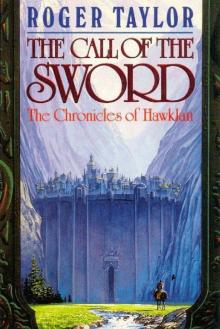 The call of the sword tcoh-1
The call of the sword tcoh-1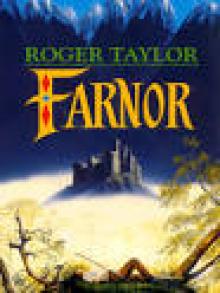 Farnor
Farnor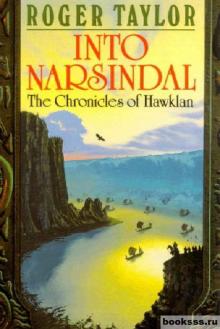 Into Narsindal
Into Narsindal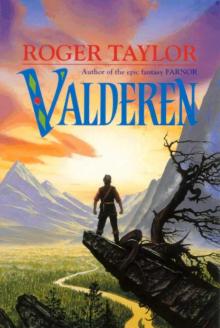 Valderen ft-2
Valderen ft-2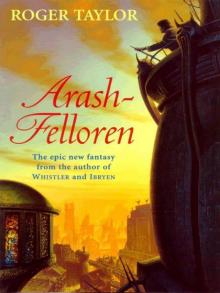 Arash-Felloren
Arash-Felloren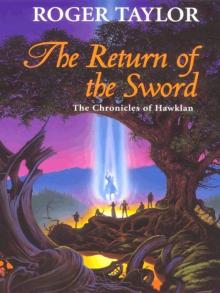 The Return of the Sword tcoh-5
The Return of the Sword tcoh-5![Ibryen [A sequel to the Chronicles of Hawklan] Read online](http://i1.bookreadfree.com/i1/03/26/ibryen_a_sequel_to_the_chronicles_of_hawklan_preview.jpg) Ibryen [A sequel to the Chronicles of Hawklan]
Ibryen [A sequel to the Chronicles of Hawklan]![The Call of the Sword [Book One of The Chronicles of Hawklan] Read online](http://i1.bookreadfree.com/i/03/24/the_call_of_the_sword_book_one_of_the_chronicles_of_hawklan_preview.jpg) The Call of the Sword [Book One of The Chronicles of Hawklan]
The Call of the Sword [Book One of The Chronicles of Hawklan]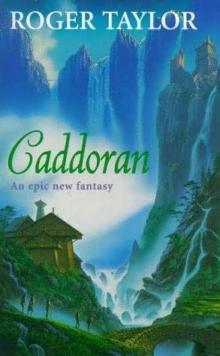 Caddoran
Caddoran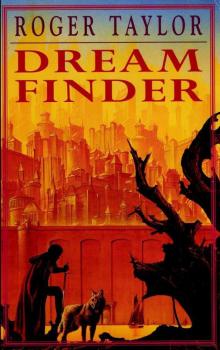 Dream Finder
Dream Finder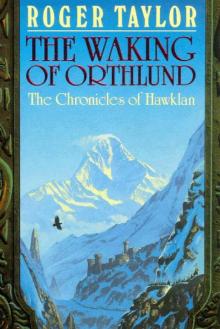 The Waking of Orthlund
The Waking of Orthlund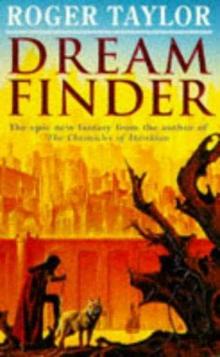 Dream Finder cohs-1
Dream Finder cohs-1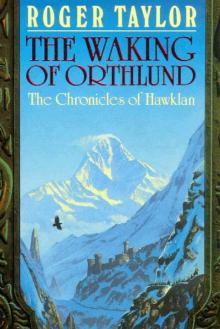 The waking of Orthlund tcoh-3
The waking of Orthlund tcoh-3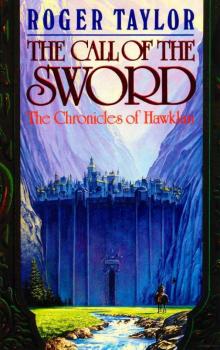 The Call of the Sword
The Call of the Sword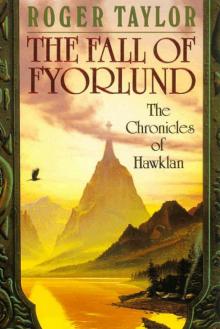 The fall of Fyorlund tcoh-2
The fall of Fyorlund tcoh-2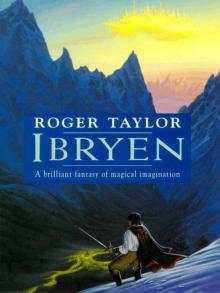 Ibryen
Ibryen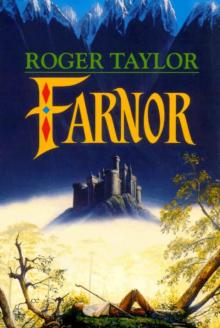 Farnor ft-1
Farnor ft-1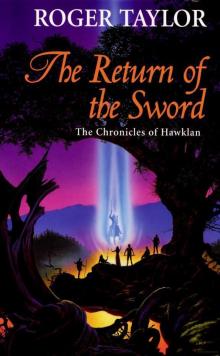 The Return of the Sword
The Return of the Sword![Into Narsindal [Book Four of The Chronicles of Hawklan] Read online](http://i1.bookreadfree.com/i2/04/06/into_narsindal_book_four_of_the_chronicles_of_hawklan_preview.jpg) Into Narsindal [Book Four of The Chronicles of Hawklan]
Into Narsindal [Book Four of The Chronicles of Hawklan]![Valderen [The Second Part of Farnor's Tale] Read online](http://i1.bookreadfree.com/i2/04/05/valderen_the_second_part_of_farnors_tale_preview.jpg) Valderen [The Second Part of Farnor's Tale]
Valderen [The Second Part of Farnor's Tale]![The Fall of Fyorlund [Book Two of The Chronicles of Hawklan] Read online](http://i1.bookreadfree.com/i2/04/08/the_fall_of_fyorlund_book_two_of_the_chronicles_of_hawklan_preview.jpg) The Fall of Fyorlund [Book Two of The Chronicles of Hawklan]
The Fall of Fyorlund [Book Two of The Chronicles of Hawklan]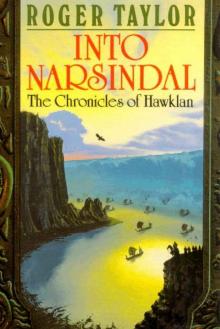 Into Narsindal tcoh-4
Into Narsindal tcoh-4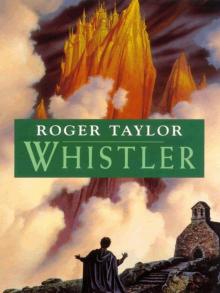 Whistler
Whistler![Whistler [A sequel to The Chronicles of Hawklan] Read online](http://i1.bookreadfree.com/i2/04/12/whistler_a_sequel_to_the_chronicles_of_hawklan_preview.jpg) Whistler [A sequel to The Chronicles of Hawklan]
Whistler [A sequel to The Chronicles of Hawklan]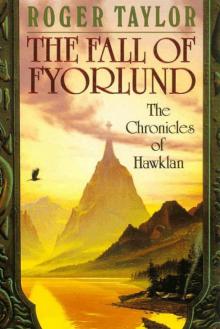 The Fall of Fyorlund
The Fall of Fyorlund![The Waking of Orthlund [Book Three of The Chronicles of Hawklan] Read online](http://i1.bookreadfree.com/i2/04/11/the_waking_of_orthlund_book_three_of_the_chronicles_of_hawklan_preview.jpg) The Waking of Orthlund [Book Three of The Chronicles of Hawklan]
The Waking of Orthlund [Book Three of The Chronicles of Hawklan]